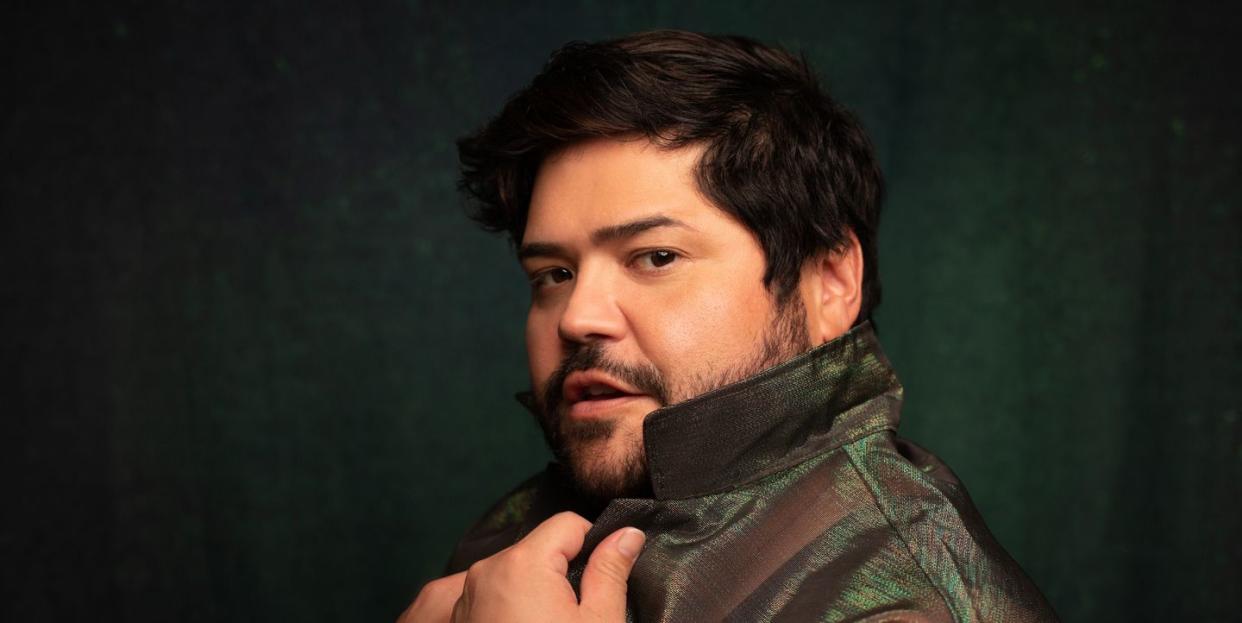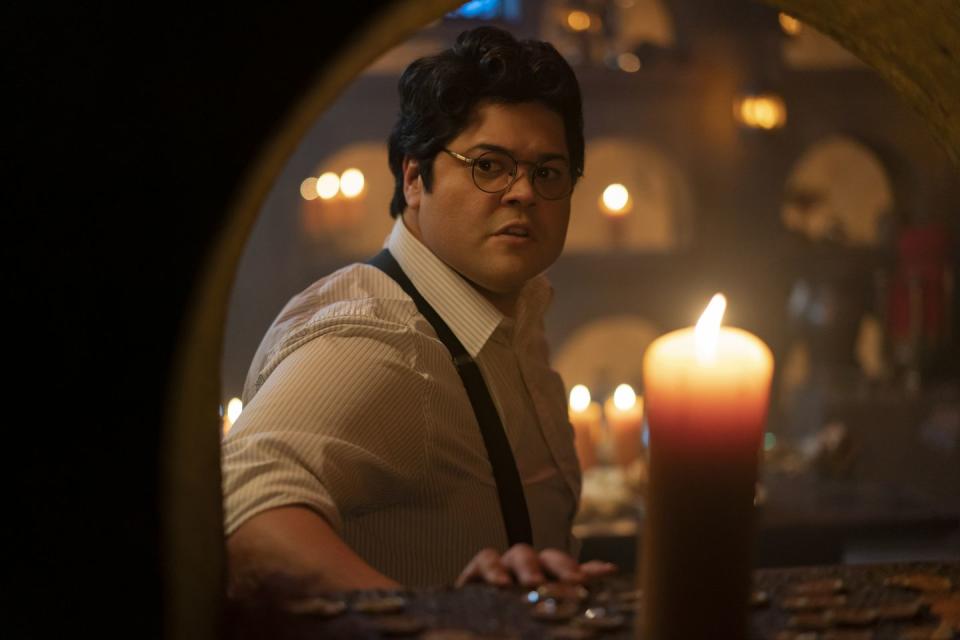My Journey to Coming Out

Throughout the seasons of What We Do in the Shadows, many people have questioned Guillermo's sexuality. I've personally gotten the question of "is he or isn't he?'' many times before. I suppose now the answer is that he was hiding in the shadows all along—something I personally can relate to. It was important to me that I handled Guillermo’s coming out story authentically and with fragile hands. If you had put a mirror to my face while filming this episode, I feel as though I would have seen a younger version of myself anxiously waving back at me. We had lived this life before.
I knew I was different pretty early on, but as a child you just want to be accepted. Throughout early elementary school, I was unapologetically myself. I did school plays, and I was always eager to learn and make new friends. But as time went on, the kids around me sensed “something’” that I felt was naturally part of me. Before I knew it, my only friends were the teachers who noticed my sudden social decline.

In traditional Mexican culture, having a boy means you’ve hit the jackpot. You’ve borne a son who will grow up quickly, learning the importance of hard work—most of that being manual labor. The son will grow to be a ladies man, el hombre de la casa (man of the house), eventually finding a girlfriend while he plays sports in high school and begins to join his father on weekend jobs. This training comes in handy later when he’s ready to be a husband. He is expected to have children and never drop his masculine ideals—after all, it would be a shame if someone were to mistake you for a gay man. It would be shameful to your parents who have worked hard to raise you. The community would whisper in passing, saying, “probrecita, su hijo es gay” (that poor mom, her son is gay), and although they are whispers, they’re heard in the highest decibel.
As you can imagine, the societal weight on my young shoulders became immense. The last thing I wanted was for my parents to be the talk of the town. One year while visiting family back home in Mexico, I was outside playing with my toy Tonka truck and some dolls when I noticed the neighborhood kids playing together. I walked over in hopes of playing with them and making new friends. When I reached the group, I was approached by one of the boys, and before I could even say a word, he said his older brother had told them they shouldn’t play with me because I was a mariposa (which translates to butterfly). I didn’t know it at the time, but that term is usually used with negative connotations to degrade a flamboyant person—at its core, it’s just another homophobic slur. It didn’t take long for his buddies to join in on the insult, chanting mariposa in unison. Their voices seemed to echo in the street. The word followed me down the street as I walked away confused and sad. My eyes filled with tears.
Little me didn’t know what they meant, but whatever it was, it wasn’t good. I began to feel and hear objects flying by my head at high velocity. In the midst of turning back to figure out what was going on, BAM! I was struck by a rock right above my eyebrow. They laughed and high-fived each other as if they had gotten the bullseye. My vision was obstructed by the blood beginning to stream down my face, while the mixture of blood and my tears caused me to trip on the dirt road. I grabbed my truck through blurred vision and ran back to my mom. Panicked, she asked me what had happened. “Mijo, que paso!?” she yelled. While still crying, I told her about the kids. I said they had called me mariposa over and over. I asked her to tell me what they meant; I couldn’t understand what had just happened. “Que importa lo que digan” (who cares what they say) she said. “Mariposas are beautiful.” She wiped my tears away, and suddenly I felt like I wasn’t alone in this. Those kids may not have accepted me, but the people who mattered the most always did.
I can speak from personal experience that I always felt like I wasn’t mature enough or informed enough to make the big coming out announcement. There’s no guidebook for something like this. The truth is, the moment it happened—when it happened and how it happened—was the right time. If the truth of who you are was a home, you are allowed to live in it before having to invite everyone in. People are only allowed in this home you’ve built on your own terms, and only when you’re ready to host them. There is no ticking time bomb you should fear; whether you are 12, 25, or 75, the time is right when it’s right for you.
To all those who may feel alone in their journey: I want you to know I see you, I stand beside you in full support, and I love you as you are. The right people always will. Most importantly, I hope you know we need you here and that the world is a better place because you’re in it.
You Might Also Like

